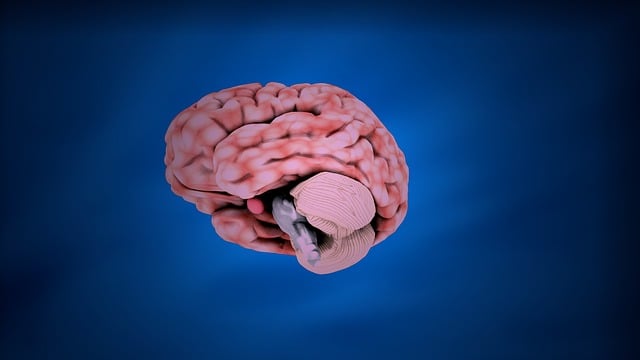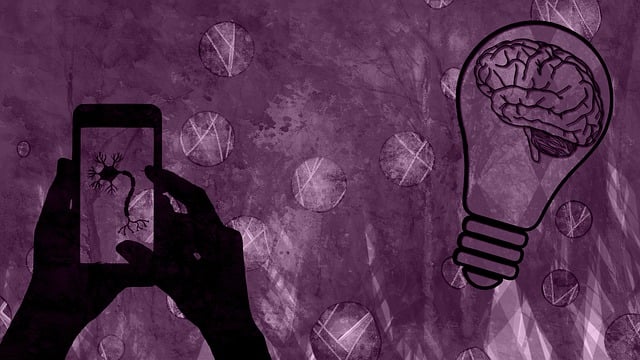In today's media landscape, while representation of mental illness has improved, challenges remain, especially for men. Historically, stereotypes and ignorance fueled stigma. Now, a nuanced approach is needed, balancing resilience stories with accurate depictions of severe conditions. Media's role in shaping public perception is crucial; incorporating diverse narratives like therapy for men's issues can normalize conversations about mental wellness. By integrating authentic mental health journeys and practices like Mind Over Matter, media can support education programs, break down barriers, and encourage healthy coping mechanisms, fostering a more supportive environment for men's mental well-being.
In today’s media landscape, the representation of mental illness often falls short, perpetuating harmful stereotypes and contributing to a culture of silence around men’s mental health. This article delves into the current state of mental illness portrayal in media, specifically examining the unique challenges faced by men. We explore how stereotypes impact help-seeking behaviors and propose therapy for men’s issues as a solution. By presenting positive representations and encouraging open dialogue, media can play a pivotal role in fostering mental well-being among males.
- Understanding the Current State: Mental Illness in Media Portrayal
- The Impact of Stereotypes and Lack of Representation on Men's Mental Health
- Solutions and Strategies: Promoting Positive Change through Media Therapy for Men's Issues
Understanding the Current State: Mental Illness in Media Portrayal

In today’s media landscape, the representation of mental illness has evolved significantly, yet challenges remain. Historically, mental health issues have been portrayed stereotypically or ignored altogether, perpetuating stigma and misunderstanding. The current state demands a more nuanced approach, where stories of resilience and recovery are balanced alongside accurate depictions of severe conditions. This shift is crucial for fostering empathy and normalizing conversations about mental wellness, especially for men, whose struggles are often masked by societal expectations.
The media plays a pivotal role in shaping public perception, making it essential to incorporate diverse narratives. Initiatives like therapy for men’s issues gain prominence, reflecting the growing awareness of unique challenges faced by males. By integrating characters with authentic mental health journeys, media can contribute to mental health education programs designed to break down barriers. Moreover, incorporating practices such as Mind Over Matter principles and mental wellness journaling exercises in storytelling can provide guidance while encouraging viewers to explore their own mental health.
The Impact of Stereotypes and Lack of Representation on Men's Mental Health

The representation of mental illness in media plays a pivotal role in shaping societal perceptions and impacting help-seeking behaviors, especially among men. For decades, media portrayals have often perpetuated harmful stereotypes, such as associating mental health struggles with weakness or even madness. These stereotypes create a culture where men feel ashamed to acknowledge their emotional vulnerabilities, hindering their willingness to seek therapy for mens issues. The lack of diverse and accurate representations further exacerbates the problem, leaving many men unidentifiable with the characters facing mental health challenges.
As a result, men’s mental health awareness suffers, and they often turn to self-care practices or mind over matter principles as coping mechanisms instead of professional therapy. This can lead to delayed treatment or avoidance of seeking help altogether, which may have severe consequences. Encouraging open dialogue about mental illness in media, promoting diverse storytelling, and challenging stereotypes are essential steps towards fostering a more supportive environment for men’s mental health, ultimately encouraging them to prioritize their well-being.
Solutions and Strategies: Promoting Positive Change through Media Therapy for Men's Issues

In addressing the representation of mental illness in media, one powerful solution lies in integrating therapy for men’s issues as a narrative device. Media has the unique ability to shape public perception, and by showcasing characters grappling with emotional regulation and mood management in a nuanced light, we can foster greater understanding and reduce stigma. This shift requires diverse storytelling that moves beyond stereotypical portrayals of masculinity and mental health.
Through compelling narratives, media can highlight the importance of mental wellness as an integral part of overall health and well-being for men. By presenting characters who openly discuss their struggles and seek support, we normalize conversations around therapy for men’s issues. This approach encourages viewers to recognize emotional challenges and promotes healthy coping mechanisms, ultimately contributing to a more supportive societal environment for mental health awareness and care.
Media representation plays a pivotal role in shaping societal perceptions of mental illness, particularly for men. The current landscape, marked by stereotypes and limited positive portrayals, contributes to stigma and delays in seeking therapy for men’s issues. However, through proactive strategies such as media therapy, we can foster more nuanced narratives that encourage open dialogue about mental health challenges. By promoting diverse, empathetic representations, we have the potential to revolutionize how society views and supports men’s mental well-being. Implementing these solutions is a collective responsibility, one that holds the power to create a healthier, more inclusive future for all.











